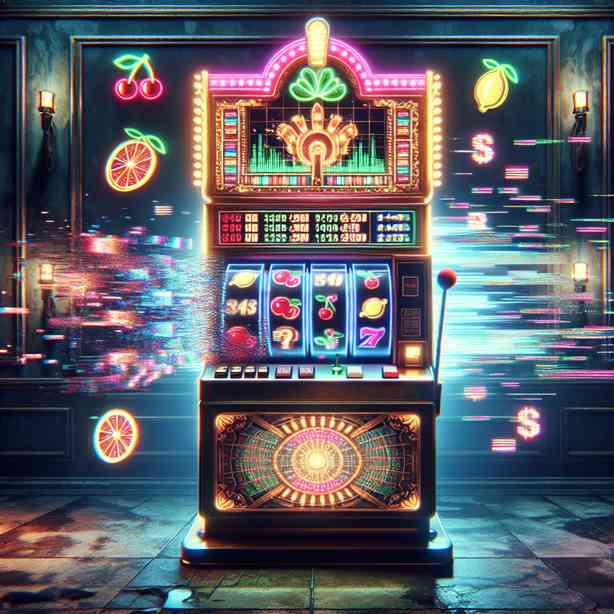
There’s a curious phenomenon in the world of gaming and technology that many individuals often brush off as mere superstition or urban legend—the belief that a glitch in a slot machine or video game can result in extraordinary outcomes. This idea intrigues both casual players and enthusiasts alike, as it opens a conversation about the nature of technology, luck, and the human experience. In this detailed exploration, we aim to delve deeper into this enigmatic belief and the experiences that often accompany it.
Firstly, to understand the allure of glitches, it’s essential to realize what a glitch truly is. A glitch refers to a temporary malfunction or irregularity in a technological system or game, leading to unexpected behavior. In gaming, this could mean anything from a character getting stuck in a wall to a visual display malfunctioning. These errors can have humorous or frustrating outcomes, yet they can also inadvertently lead to significant wins—particularly in the realm of slot machines.
Slot machines, with their bright lights and enticing sounds, serve as an excellent example of how glitches could be interpreted as opportunities for fortune. One common story that circulates among players is the so-called “jackpot glitch,” where players have claimed to exploit a slot machine malfunction resulting in an unexpectedly high payout. While many instances can be explained by chance or a simple error in the machine’s programming, the allure of the “glitch”—the idea that something extraordinary might happen unexpectedly—captures the imagination and discussions often grow around these occurrences.
It is worth noting that casinos and gaming establishments are acutely aware of these glitch occurrences. Many have implemented rigorous quality-control measures and continuous software updates to ensure that their machines operate without a hitch. Nevertheless, stories of glitches continue to circulate within gaming communities, often embellished with each retelling.
Taking a closer look at the psychological aspect, the belief in glitches taps into broader themes in gambling psychology. Particularly, the concept of intermittent reinforcement is at play. This is a principle derived from behavioral psychology, suggesting that rewards that are given sporadically—such as the unexpected win from a glitch—can create a more addictive cycle of behavior. This explains why some individuals might find themselves returning to slots in the hopes of experiencing that same thrilling occurrence once more.
Furthermore, the community surrounding gambling and gaming thrives on shared experiences—both good and bad. Online forums and social media platforms are filled with stories of near-misses and extraordinary wins related to glitches. Players exchange tips, narrate their own experiences, and offer insights that build a collective narrative surrounding the allure of the glitch. This shared storytelling fosters a sense of camaraderie among players, as they bond over their similar pursuits and hopes.
However, it is imperative to approach the topic with a healthy dose of skepticism. Many tales of glitches leading to big wins may indeed be exaggerated, fabricated, or purely anecdotal. The odds involved in slot machines are meticulously calculated, and while a glitch may lead to a moment of exhilaration for one player, it is essential to remember that these machines are designed to generate profit for the establishment in the long run.
At the same time, it is equally important to recognize that the gaming industry’s complex relationship with technology and consumer behavior leads to an inherent tension. Players seek excitement and the potential for a life-changing outcome, while manufacturers strive to maintain control over the gaming experience. This creates an environment ripe for exploration, reflection, and sometimes, misunderstanding.
Moreover, in the expanding age of technology, artificial intelligence has begun to play a role in gaming. New algorithms and machine learning techniques are being integrated into game design, creating even more opportunities for unexpected interactions. These advancements lead to the question of whether we will see more creative or even “sentient” glitches in the future. This intriguing possibility poses ethical and practical questions about the responsibilities of designers and the experiences of players.
As we reflect on this topic, it becomes clear that the concept of glitches—whether real or imagined—has deep cultural implications as well. Many of us search for something beyond the mundane in our daily lives, and the notion of a glitch in a slot machine stands as a metaphor for hope and possibility. It encapsulates the thrill of chance and the idea that our lives could change in an instant, reminiscent of the unexpected twists and turns we experience in reality.
In conclusion, the fascination with glitches in gaming and technology, particularly in slot machines, highlights our innate quest for luck, excitement, and connection. While the stories may sometimes stretch the truth or be embellished over time, they serve an essential role in defining our relationships with technology and entertainment. By examining the psychological motivations behind our beliefs in such glitches, engaging with other players, and being aware of the technology’s rise, we discover a rich tapestry of human experience that extends beyond just a game. Thus, the next time you spin the reels, remember that perhaps it’s more than just luck—it’s a shared journey, one that connects players through the allure of the unexpected.


